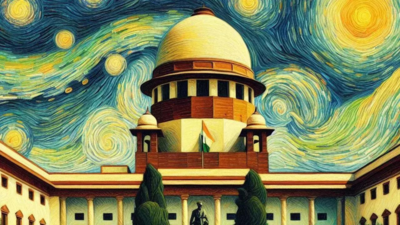New Delhi: Supreme Court A hearing was scheduled for February 4 on Wednesday to address the petition challenging the appointment process chief election commissioner (CEC) and election commissioner (EC) under the 2023 law. “It will be the relationship between the opinion of the court under Article 141 and the legislative power to make law,” the Supreme Court said.
A bench comprising Justices Surya Kant, Dipankar Datta and Ujjal Bhuyal mentioned the key issues of the day. According to advocates Prashant BhushanRepresenting the NGO, it was pointed out that the current CEC, Rajiv Kumar, will retire on February 18 and if the court does not intervene, a new CEC can be appointed under the contentious law.
On March 2, 2023, the Supreme Court judgment called for the formation of a selection panel consisting of the Prime Minister, Leader of Opposition and the Chief Justice of India (CJI) to appoint the CEC and EC. However, Bhushan argued that the new law excluded the CJI from the selection panel and replaced him with a federal cabinet minister.
“As per the new law, the selection committee will consist of the prime minister, federal cabinet ministers and the leader of the opposition or the leader of the largest opposition party in the Lok Sabha. They have removed the CJI from the selection committee.
The court highlighted its role in assessing the matter, saying it would decide “whose view reigns supreme”.
Senior advocate Gopal Sankaranarayanan believes that the government cannot bypass the March 2 verdict without amending the constitution. “The only way for the Center to get around the judgment is to amend the constitution rather than enact a law,” he argued.
Bhushan further said government control over appointments could undermine democracy. “The government cannot remove the CJI from the selection panel constituted under the direction of the Supreme Court,” he said.
The March 2 judgment made it clear that appointments to the Central Election Commission and the Electoral Commission must be made by the President on the advice of a committee that includes the Prime Minister, the Leader of the Opposition and the Central Intelligence Agency. The court noted that this norm will remain in force until Parliament enacts a law.
Bhushan, appearing for petitioners from the Association for Democratic Reforms (ADR), argued that excluding the CJI under the 2023 law amounted to excessive administrative interference and compromised the independence of the Election Commission.
Another petitioner, Congress leader Jaya Thakur, sought to stop the Center from making appointments under the new law, arguing that it was detrimental to free and fair elections.
Under the new legislation, the selection panel chaired by Prime Minister Narendra Modi recommended former IAS officers Gyanesh Kumar and Sukhbir Sandhu as executive members for 2024.
NGO ADR has specifically challenged Section 7 of the Chief Election Commissioner and Other Election Commissioners Act, 2023, which excludes the CJI from the electoral process.
The bench asked Bhushan and Sankaranarayanan to remind the bench on February 3 so that the matter could be heard the next day.








